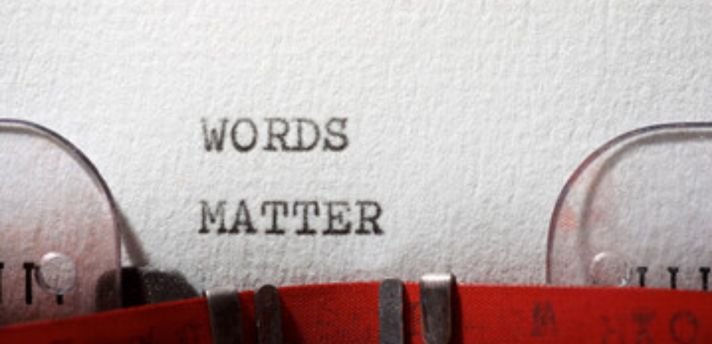


Spelling correctly is a crucial part of good writing. From professional documents to personal text messages, spelling errors can undermine your message and cause misunderstandings.
In this comprehensive guide, we’ll explore why spelling matters so much in writing and provide tips to help you improve your spelling skills. Make your words or writing plagiarism-free.
Here are five of the top reasons why using proper spelling is essential:
Spelling errors make you seem careless. They can lead readers to question your intelligence, education, and competence.
For example, a resume full of typos gives employers the impression you lack attention to detail. In school assignments, spelling mistakes can result in lower grades from teachers.
Using the wrong word or spelling it incorrectly can completely change the meaning of your sentence. This leads to confusion for the reader.
For instance, writing “The principle was very principle” makes no sense because the writer used the wrong word - “principal” was needed instead.
When every word is spelled accurately, readers can follow your ideas easily. They don’t have to stop and decipher words along the way.
However frequent spelling errors disrupt the reading flow. This forces readers to pause and figure out what you really meant to say.
Taking the time to spell words properly shows readers you cared enough to get it right. But fast, careless writing overwhelmed with errors does the opposite.
Readers feel you didn’t think their time was worth trying to spell things accurately before sending it their way.
Each language has accepted rules and standards for usage, grammar, and spelling. When you follow these guidelines correctly, your writing falls within those norms.
Ignoring spelling rules moves your writing outside of those boundaries. While creative license is fine occasionally, too many deviations make writing difficult to understand.
Now that you know why it’s so important to spell accurately, let’s explore some key ways you can improve your spelling skills.

Here are some effective tips and methods for enhancing your spelling:
English has over 200 common words that don't follow regular spelling rules. Knowing these exceptions is key to avoiding errors.
Words like "colonel," "embarrass," and "supersede" trip people up frequently. Make flashcards with the commonly misspelled words to review them periodically.
Breaking words into their origins and parts can help you determine the correct spelling. For instance, remembering “ad” means “to or toward” in Latin reminds you the correct spelling is “advertise” not “advertise.”
If you don't know how to spell a word, take the time to look it up. After verifying the right spelling a few times, it will likely stick in your memory.
Use reputable dictionaries or vocabulary references online to check words whenever needed.
Expanding your reading habits exposes you to more words in context. You absorb proper spelling effortlessly just through increased reading volume and vocabulary exposure.
Mnemonic devices help connect words to memories so you can recall the proper spelling. The classic example is using “i before e except after c” to remember the rule.
Come up with fun mnemonics that work for you and difficult words.
Take practice spelling tests online or use flashcards with tricky words. The repetition helps reinforce correct spellings to make them automatic.
Train your eyes to notice spelling inconsistencies by proofreading everything you write. Go line by line and spell out each word aloud when uncertain. The more misspellings you catch through proofing, the more your brain will remember for next time.
Word processing spell checks are useful but imperfect. Use them to alert you to go back and check words. Don’t assume flagged words are spelled correctly if you ignore the red underlines.
Have friends, family, or colleagues familiar with language conventions take a look at your writing. A second set of eyes helps catch errors you might overlook.
Taking a strategic approach to spelling and applying these tips can help you write accurately. Let’s look at some FAQs about spelling.
A) Spelling is interconnected with both reading and writing. When reading, identifying words correctly depends on accurate spelling knowledge. For writing, producing words requires selecting the proper spelling.
A) The correct spelling is “benefited” and “benefiting.” Words with prefixes typically drop one “t” or “p” when adding an ending that begins with the same letter. So “benefit” becomes “benefited” and “worship” becomes “worshiping.”
A) “Benefitting” is an incorrect spelling of “benefiting” which means to receive a benefit or be helped by something. Since it's a misspelling, “benefitting” has no actual meaning.
A) “Benefiting” is the accurate spelling and means receiving an advantage or help. “Benefitting” is an incorrect spelling of the same word. The proper spelling loses one “t” when adding the -ing ending.
A) Using accurate spelling throughout an essay upholds your credibility, allows smooth reading, and demonstrates respect for language conventions. Essays with many misspellings suggest the writer is careless.
A) Yes, spelling should matter in writing of all kinds. Proper spelling facilitates communication, conveys respect for the reader, and prevents confusion. While creativity can require bending rules at times, accuracy is important.
As you can see, correct spelling is essential for conveying your real meaning to readers accurately and clearly. While English has tricky conventions, taking the time to verify uncertain words, proofread carefully, and apply spelling tips can boost your skills.
Accuracy in writing signifies respect for language traditions and prevents confusion. With some concerted effort, you can develop proficiency in spelling for effective communication.